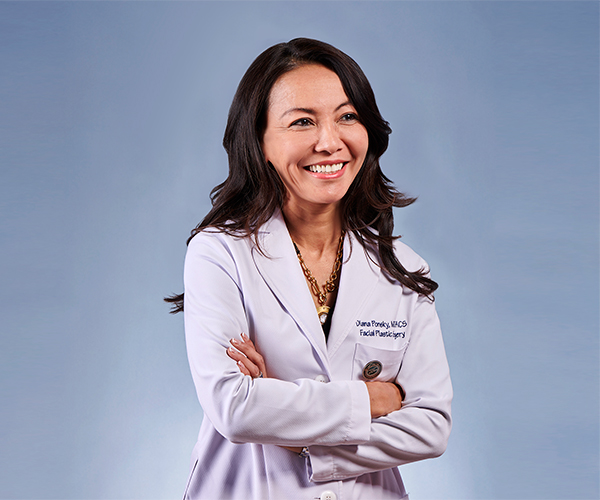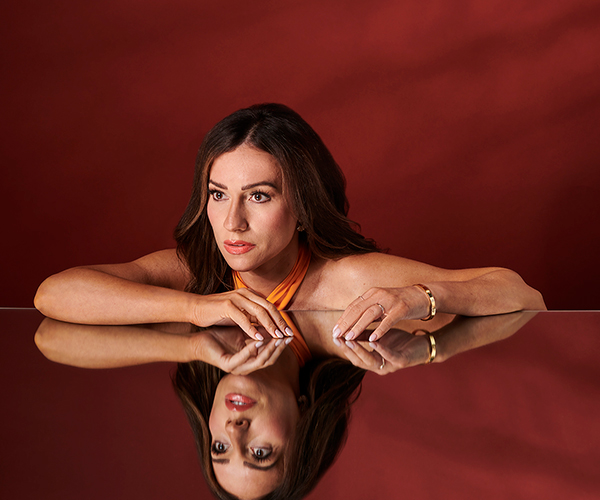Dr. Anne Lyren likes to draw — not as an artistic release, but as a way to solve problems.
When the pediatric ethicist at Rainbow Babies & Children’s Hospital is stuck on a tough case, she sketches diagrams to remind herself not to make premature conclusions.
“There is no end to the twists and turns that taking care of a child in this setting can bring,” says Lyren, director of the Rainbow Pediatric Ethics Center at University Hospitals, the first in the country devoted to the ethical responsibilities to children.
A Harvard graduate, Lyren veered from a traditional medical path, earning her master’s in philosophy before going to med school at Case Western Reserve University. She completed a pediatric residency at UH at the time her colleagues were developing a pediatric ethics center. She became its director in 2004.
Lyren helps parents work through some of the most difficult decisions they will ever face. “One of the important things in pediatric ethics is to separate from what you would do in the situation,” says Lyren, who is the mother of two boys. “To say, ‘I would never do that,’ is not a good enough reason to not go forward.”
Every day, pediatric dilemmas surface as a result of the advanced technology and extraordinary intensive care available for children today. When is it too much? What‘s next? Who’s in charge? Unlike adult ethics, where autonomy rules, children are not in a position to call the shots for their care. So Lyren is called in as a consultant to facilitate practical discussion between nurses and doctors and parents and caregivers.
“I provide them a safe environment,” she says. “I try to empower people to do what they are already doing. And when they reach a fork in the road, I help them think through the different options.”
A board of 25 ethics committee members — including doctors, nurses, social workers, chaplains, child life specialists, parents, attorneys and administrators — help her with the really tough cases. Lyren was an integral part of University Hospitals’ work with the conjoined Dogaru twins — 3-year-olds who were attached at the head with their brains connected.
“This was an extremely innovative, speculative case,” she says. “There are few precedents, and you can make an argument that there have never been children quite like the Dogarus.” Ultimately, the hospital did not go through with final surgeries to separate the twins, because the risks outweighed potential benefits.
Most of Lyren’s ethical consultations center on end-of-life issues.
“When children die, these are some of the most profound experiences parents ever have to face,” she says. “They can really form unbelievable relationships with the people who are taking care of their children.”
When the pediatric ethicist at Rainbow Babies & Children’s Hospital is stuck on a tough case, she sketches diagrams to remind herself not to make premature conclusions.
“There is no end to the twists and turns that taking care of a child in this setting can bring,” says Lyren, director of the Rainbow Pediatric Ethics Center at University Hospitals, the first in the country devoted to the ethical responsibilities to children.
A Harvard graduate, Lyren veered from a traditional medical path, earning her master’s in philosophy before going to med school at Case Western Reserve University. She completed a pediatric residency at UH at the time her colleagues were developing a pediatric ethics center. She became its director in 2004.
Lyren helps parents work through some of the most difficult decisions they will ever face. “One of the important things in pediatric ethics is to separate from what you would do in the situation,” says Lyren, who is the mother of two boys. “To say, ‘I would never do that,’ is not a good enough reason to not go forward.”
Every day, pediatric dilemmas surface as a result of the advanced technology and extraordinary intensive care available for children today. When is it too much? What‘s next? Who’s in charge? Unlike adult ethics, where autonomy rules, children are not in a position to call the shots for their care. So Lyren is called in as a consultant to facilitate practical discussion between nurses and doctors and parents and caregivers.
“I provide them a safe environment,” she says. “I try to empower people to do what they are already doing. And when they reach a fork in the road, I help them think through the different options.”
A board of 25 ethics committee members — including doctors, nurses, social workers, chaplains, child life specialists, parents, attorneys and administrators — help her with the really tough cases. Lyren was an integral part of University Hospitals’ work with the conjoined Dogaru twins — 3-year-olds who were attached at the head with their brains connected.
“This was an extremely innovative, speculative case,” she says. “There are few precedents, and you can make an argument that there have never been children quite like the Dogarus.” Ultimately, the hospital did not go through with final surgeries to separate the twins, because the risks outweighed potential benefits.
Most of Lyren’s ethical consultations center on end-of-life issues.
“When children die, these are some of the most profound experiences parents ever have to face,” she says. “They can really form unbelievable relationships with the people who are taking care of their children.”



